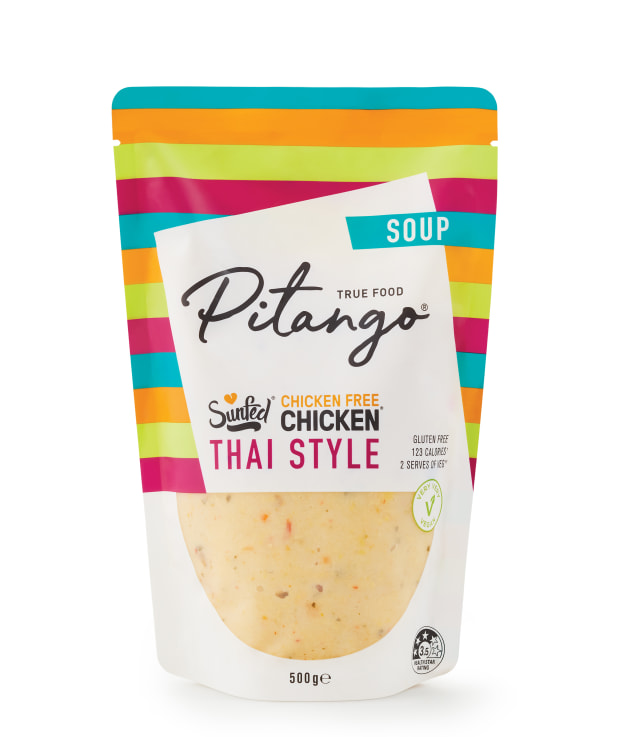[ad_1]
Large development and little signal of slowing, it looks as if a no brainer to get on board the plant-based categorical. Future Market Insights co-founder and managing director Sudip Saha lays out seven issues to recollect while you do. This text was first revealed in Food & Drink Business April 2021.
It’s no exaggeration to say that the plant-based market has seen huge development with little signal of slowing down. The truth is, it’s predicted to surpass $480 billion by 2024, with a projected CAGR of just about 14 per cent. Getting into the business is changing into a no brainer for a lot of companies who search to guarantee customers they’re mitigating environmental impression and animal cruelty.
Nevertheless, the street to success isn’t as straightforward as merely taking animal merchandise out of the image. Plant-based choices are working exhausting to shake off outdated preconceptions that vegetarian and vegan meals is bland, inaccessible, and costly.
Added to that, companies wrestle with build up loyal communities, tailoring the correct messaging, balancing vitamins, and sustaining their enterprise fashions with clear provide chains. The plant-based market represents an enormous alternative, so what ought to to navigate it efficiently?
1. Meat alternate options with a twist
The plant-based meat market had already been rising earlier than the pandemic; gross sales of plant-based meat grew by 38 per cent from 2017 to 2019. The present wave of well being consciousness drove much more individuals to discover different weight loss plan choices. In response to The Good Meals Institute, plant-based meat gross sales throughout one week of March 2020 have been 454 per cent larger than within the earlier yr.
Another excuse for this development is that typical meat producers have been hit exhausting by imposed lockdowns. With many customers stocking up within the early weeks of the pandemic, plant-based alternate options have been within the highlight.

Whereas plant-based burgers and hen have been customers’ go-to, corporations shouldn’t shrink back from innovation. Past style, texture is a crucial side of plant-based meals, so exploring merchandise reminiscent of plant-based fish can current nice alternatives. For instance, the plant-based tuna market is anticipated to exhibit a CAGR of round 18 per cent between 2020 and 2030.
2. Know the trending elements
Bland tofu, soy milk, and peanut butter… These have been a number of the signature plant-based choices of the previous. Nevertheless, meals improvements have leaped forward with vegetarian and vegan foodies now having fun with new choices getting into the market – from pistachio milk and pumpkin seed oil to vegan shrimp product of seaweed. Legumes, reminiscent of lentils, chickpeas, and groundnuts additionally continue to grow in reputation, presenting sustainable and cheap elements wealthy in proteins and micro-nutrients.
The talk on vitamins can be related. Numerous research discovered that vegans might be extra vulnerable to despair or complications, which might be associated to totally different vitamin deficiencies.
Vegan dietary supplements with fastidiously optimised ingredient profiles geared toward particular dietary wants (reminiscent of vegan iron, vegan B12, protein dietary supplements, or vitamin D), are rising in reputation.
3. Packaging issues
The only-use plastics dialog remains to be very a lot alive, and pandemic-induced no-touch insurance policies with plastic overuse have even intensified it. The environmental side performs a basic function in plant-based weight loss plan desire. Manufacturers that flip to sustainable packaging, which is anticipated to turn into an over $400 billion business this yr, are more likely to win each the style buds and the hearts of their customers.
Whether or not it’s paper-based packaging, cornstarch compostable bowls, coconut-husk containers, or sugar-cane tubes, adopting an revolutionary method to product design and packaging may also enable you rating large with more and more environmentally-minded enterprise capitalists.
4. Select your phrases
The way in which plant-based merchandise are branded issues greater than you’d suppose, and plenty of corporations have needed to be taught this the exhausting method. When tailoring your messaging, it’s higher to concentrate on the constructive traits moderately than elaborating on what’s lacking or what a product isn’t like. Utilizing the time period “veggie” or “plant-based” is confirmed to work higher than “pretend meat” or “meat-free”.
Curiously, even the phrase “vegan” tends to lift unfavourable sentiment, triggering associations with boring, gross, and costly. As an alternative, manufacturers ought to depend on symbols reminiscent of a inexperienced leaf.
Relatively than highlighting the wholesome side, customers need to know concerning the style and origins. A restaurant that switched the identify of its “low-fat vegetarian black bean soup” to “Cuban black bean soup” noticed a 13 per cent uplift in gross sales. Methods like this may additionally work wonders to draw flexitarian customers or these curious to discover meat-free choices.
5. Comfort wins
There aren’t any limits on plant-based choices. Plant-based ice cream, for instance, may attain the amount of 500,000 tonnes in gross sales by 2027.
The vegan fast-food section additionally holds big promise. Handy meal prep kits or ready-made meals would be the subsequent degree, particularly when centred round core client values: style and well being.
Whether or not launching an revolutionary ingredient or a twist on a signature product, it is very important take into consideration how your providing suits into the search for comfort.
6. Transparency is essential
Sustainability, well being credentials, and full transparency have gotten the usual within the plant-based business as customers maintain corporations extra accountable than ever earlier than. Utilizing these values as guiding ideas will likely be a serious determinant for achievement in 2021 and past.
The results of unsustainable farming practices and devastating impression on native of quinoa farming in Peru and southern Bolivia opened the eyes of many, offering a distressing testimony to the dangers of unsustainable farming.
With rising demand, farmers bought most of their manufacturing for export, resulting in unfavourable impression on the vitamin of people in native communities and fuelling soil infertility and extra pests and illnesses because of mass-scale natural farming.
It’s not sufficient to have a low environmental impression anymore; a constructive environmental impression should be the purpose. For instance, these leveraging regenerative agriculture methods that enrich soil assist delay the utilization of land moderately than deplete it, are serving to mitigate local weather change and cease deforestation for agricultural functions.
7. Sustain with change
One would hardly discover a extra dynamic surroundings than the plant-based market. Whereas world corporations and retail chains are shifting shortly into the market, it’s typically budding start-ups pulling the business strings.
Finishing up your individual steady market analysis to know their progress might be key to raised product improvement and model positioning.
Specialists imagine that now could be the proper time to spend money on plant-based meals start-ups. Enterprise capitalists and start-up incubators like Berlin-based ProVeg Incubator want to help plant-based and cultured meals tech start-ups globally.
There are various plant-based market alternatives on the horizon: however these that may harvest the sweetest fruits are corporations engaged on different proteins to develop the market’s choices whereas ticking off an important facets of all: style, comfort, and value.
[ad_2]
Source link







